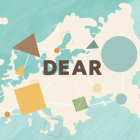Global Education & Youth in Europe: Practice & Policy
This book is a resource for both policy-makers and practitioners of Global Education (GE) and youth work. It advises how GE policy-makers can involve youth to help shape policies and mainstream GE into environment, development cooperation and broader education policies. It targets trainers of youth workers and leaders, as well as other education professionals seeking to understand the connections between youth and GA policies and practice.
"Youth participation is a fundamental part of building fairer, more inclusive societies," the book states. It provides insights into how Global Education and youth policy and practice can reinforce each other. The publisher, Global Education Network Europe (GENE), also points to their intent to show “how national and European youth policies have guided and made GE possible,” and how GE “continues to empower the youth sector.”
The book starts with the lived experiences of young people in global education (chapter 2) and describes trends in youth work and GE practice, including strengths and weaknesses (chapter 3). Young people rate their knowledge of global challenges as 6.5 out of 10. Not surprisingly, social media is the go-to for global issues for almost 19% of them. This is followed by books and articles (13.5%), school or university (12%), and youth organisations (11.8%).
Climate change tops their list of concerns, but they also express worries about peace, democracy, social injustice, among other global issues. The book notes the challenges young people face in processing vast amounts of information, but also the skills they develop through Global Education activities—critical thinking, empathy, and a sense of belonging to a global community.
Zooming in on Belgium, Cyprus, the Czech Republic, Estonia, Finland and Ireland, the book also looks at inspiring approaches of youth-centered GE practices (chapter 4). Given the differences in national contexts, the publication highlights a number of representative examples of quality GE in youth and other policies.
The book asks what role Global Education (GE) plays in shaping the identities and actions of young people. It showcases how in particular non formal education helps them to make sense of global - local interconnections. Here, they develop critical competencies through experiential learning and action-oriented projects, forging connections with peers and society. However, the journey is not without obstacles. Young leaders and youth workers often face challenges such as limited support and inadequate training in GE.
The authors analyse European youth policies and their links to GE (chapter 5) before concluding with key policy recommendations. Among others, they highlight the need for political leadership and meaningful partnerships to enhance youth participation in policy-making processes. Edited by Celina Del Felice, Ajša Hadžibegović and Ditta Trindade Dolejšiová, the book’s content is rooted in consultations with youth organisations and surveys that address youth issues and global challenges in the framework of Global Education.
Watch GENE’s 1-minute video of the book’s key insights.
To learn more about what GENE has accomplished and published in 2024, read “Networking Global Education in Europe.”

Log in with your EU Login account to post or comment on the platform.